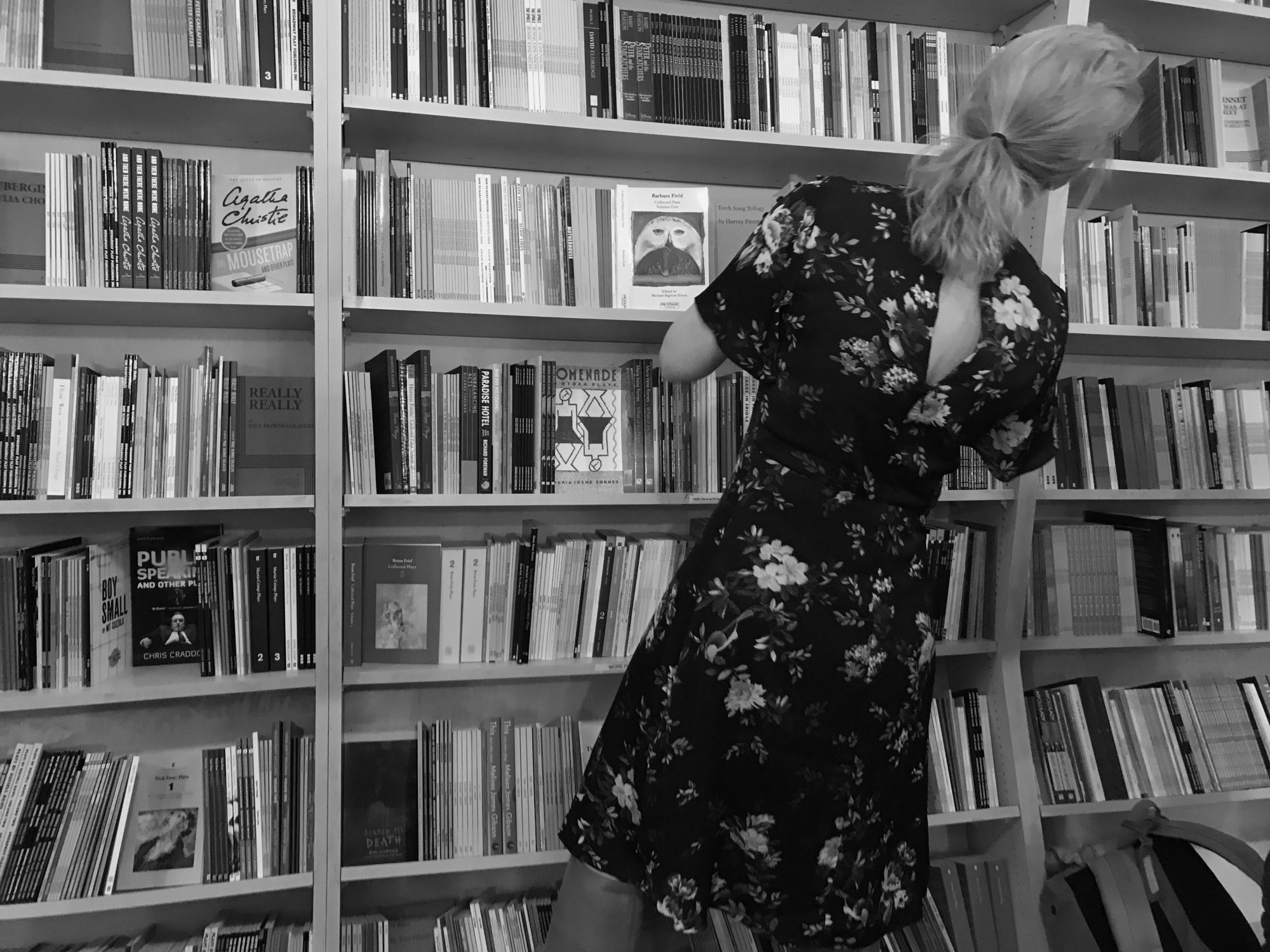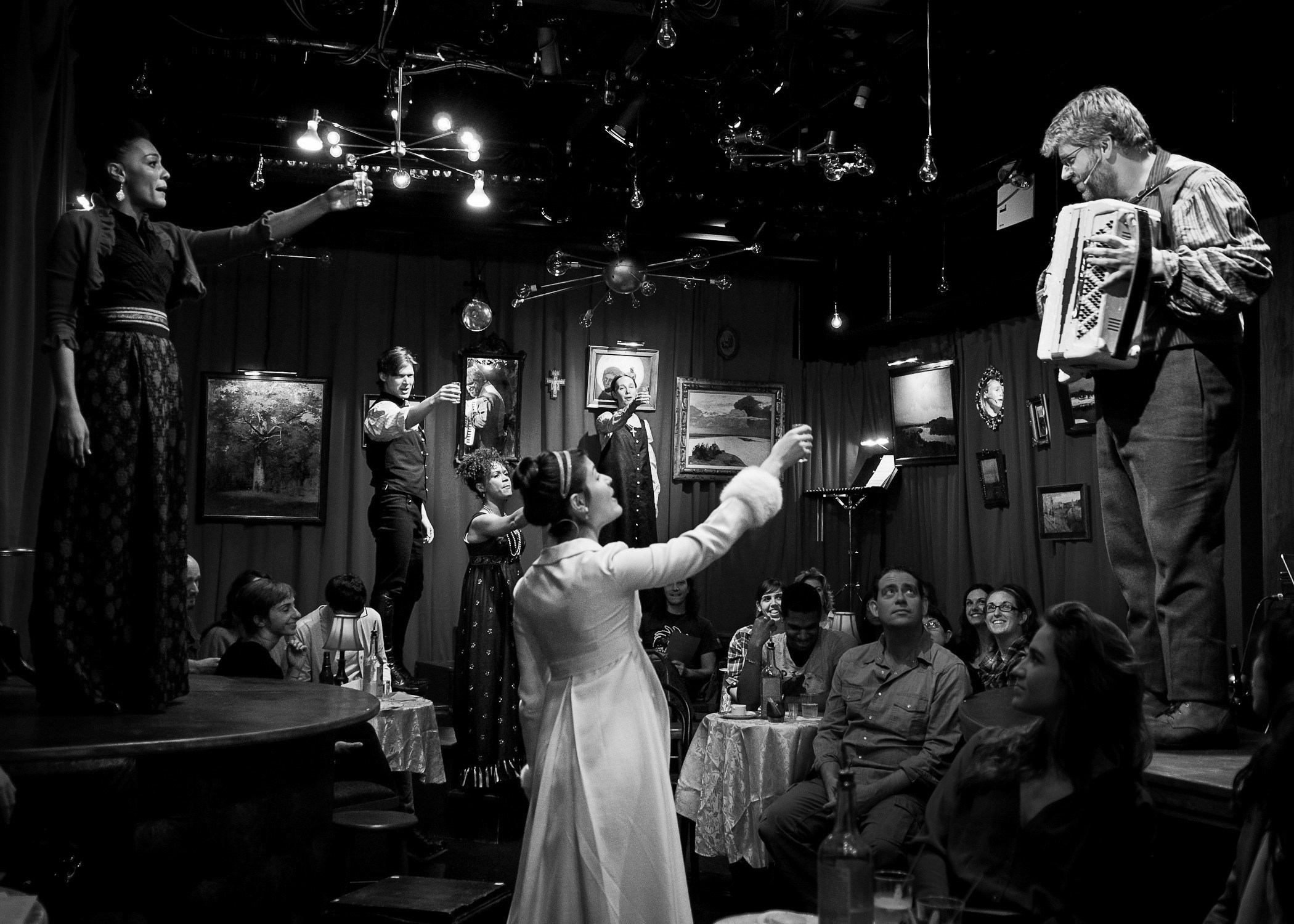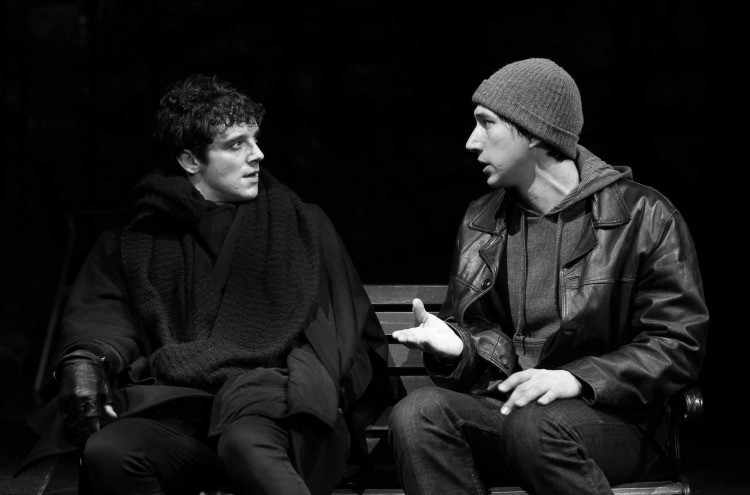What is a Dramaturg, Anyway?

In just a few weeks, I will begin my second year of college, my second year of studying dramaturgy. That means I'm bound to run into more new people who ask what my major is, with me desperately trying to throw together something resembling a definition.
I have to guess how much someone knows about theatre and the process of creating a show or production, I have to try to compress everything that a dramaturg is into something simple enough to understand but also not restrictive when I'm creating someone's understanding of the concept for the first time. Usually a few words pop out: history, writing, reading, playwright, producer, help, research.
Needless to say, I struggle with defining my major and my field, even though I've been trying to do just that since I decided I wanted to apply for the program years ago.
But I wouldn't struggle with defining it if it wasn't worth it - dramaturgy is fundamental to creating and understanding theatre, and dramaturgs are an important part of the theatrical process.
So perhaps the best way to explain what a dramaturg is is to describe what a dramaturg does...which immediately creates its own problems. The short answer is that dramaturgs can do many, many different things. We help plan seasons, we translate and adapt scripts, we make materials to support actors' understandings of their characters and the world of the play. We do whatever directors want us to do. We do whatever playwrights want us to do. Which could be nothing.
A dramaturg serves. That is not to say that dramaturgs cannot be a strong creative force in their own right. But dramaturgs, when they're working on a production, aren't the director - they aren't the one in charge. They're glue to hold everything together, a base of knowledge and understanding.
If all of this sounds kind of vague, that's because it is. There is no definition for dramaturg, as a dramaturg's role can vary greatly from production to production. And that's assuming that dramaturgs are working specifically on a production.
So, here are some real examples:
I worked as a dramaturg on a high school production of The Diary of Anne Frank. I had no idea what I was doing, but it turned out I was heading in the right direction. I made a website filled with historical information for the actors and designers, worked with the actors on pronouncing words and names, and wrote a program note about the themes of the production, connected with information about World War II.
I am currently working as an assistant dramaturg on a new play that is still being written and revised. The dramaturgy work there involves tracking changes between new versions of the script, facilitating conversation between director and playwright, and providing support to the playwright on what is and isn't working.
The recently opened production of Head Over Heels has a book that has been adapted into Shakespearean-esque verse by James Magruder. He's a dramaturg, doing all sorts of dramaturgical things such as translation and adaptation.
Hadestown, which will have a National Theatre production in London before arriving in Broadway in 2019, has a credited dramaturg. Ken Cerniglia, who is president of Literary Managers and Dramaturgs of the Americas (LMDA), also works for Disney Theatrical. He's kind of a big deal.
What is a dramaturg? Some of the things I've heard include "a director's best friend," "mulch," "a servant of the text," "the blood of a production," "not a research mule."
I don't know of any of those definitions quite fit. A dramaturg can be so many things, whether helping to develop a new script from its earliest stages or working on a Shakespearean production. So many dramaturgs I know are "hyphenates" - they're not just turgs, they're dramaturg-playwright-artistic producers. Or dramaturg-literary manager-translator-performers.
And that's not even addressing the fact that dramaturgy itself is not restricted to dramaturgs. In fact, it really shouldn't be. Playwrights do research to connect their plays to the real world. Designers analyze shows, searching for patterns and themes that they can actualize into the set, costumes, lighting, sound, and media. Actors dig deep into the scripts to understand their character's place in the world, their motivations and behaviors. Directors immerse themselves into a show while they work on it, finding the shape of a production. That's all dramaturgical work, too.
So, what is a dramaturg? In my opinion, it's whatever a dramaturg wants to be.
(Photo Credit: Woman searches through a bookshelf at the Drama Book Shop. Photo by Amanda Faye Rosengarten.)




